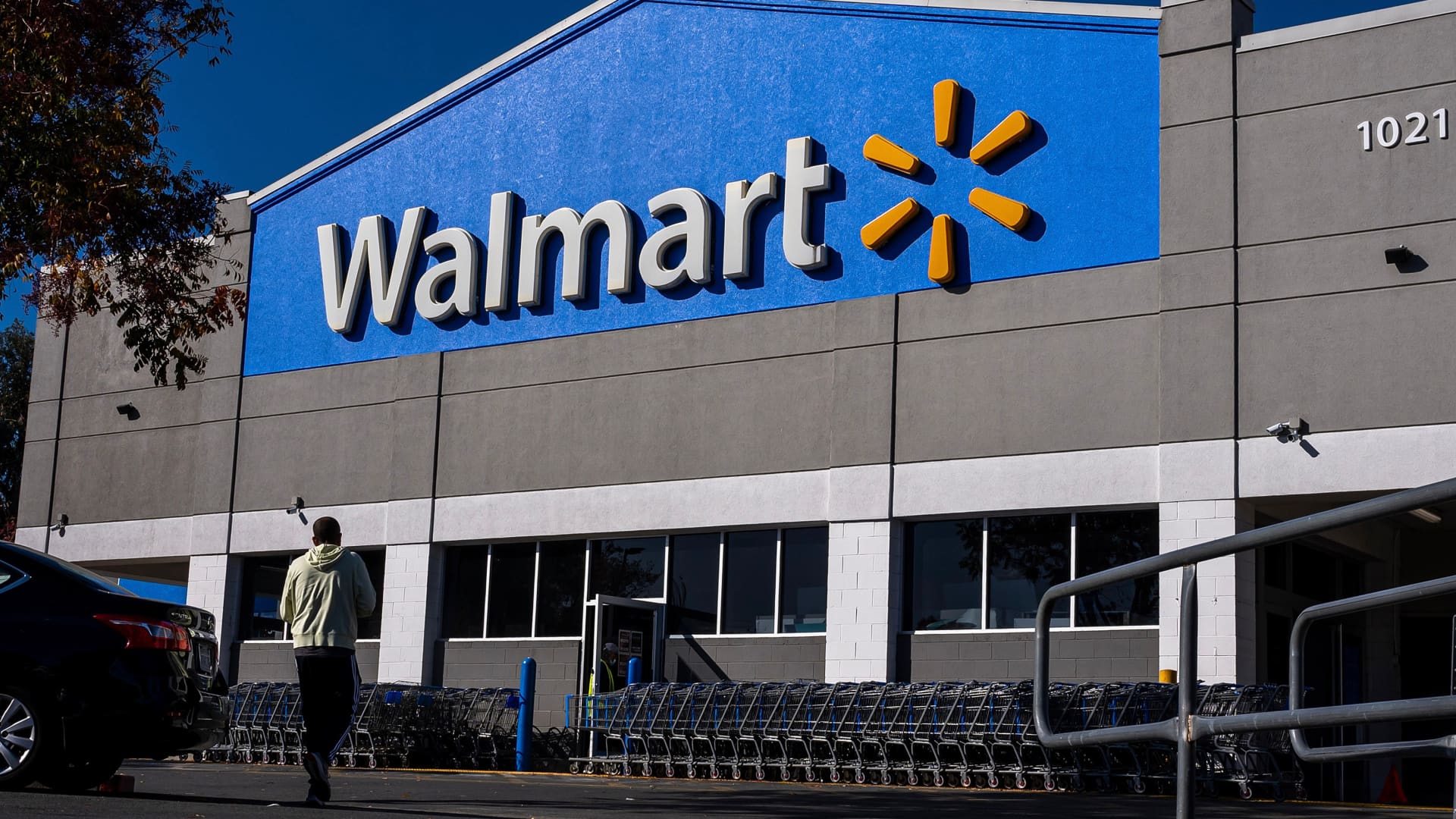A view of the Paramount Studios water tank as SAG-AFTRA members walk the picket line outside during their ongoing strike, in Los Angeles, California, USA, September 26, 2023.
Mario Anzuoni | Reuters
National Amusements halted merger discussions between global paramount and Skydance this week, putting the legacy media giant's future in doubt during a tumultuous period for the industry.
Paramount, like many of its peers, is grappling with how to make streaming a profitable business while facing peak competition, a shrinking universe of cable TV customers and a slowdown in the advertising market that has especially weighed on the package.
There are now three leaders at the helm of Paramount who must determine the best path forward for the company.
Bob Bakish stepped down from the top job in April and was replaced by the so-called “Office of the CEO”: CBS CEO George Cheeks, Paramount Media Networks CEO Chris McCarthy and Paramount Pictures CEO Brian Robbins. Executives are trying to lead Paramount out of a difficult period while working under a structure that few companies have tried.
“It's very difficult for a trio of CEOs to work long term. It's almost unheard of. How will they make decisions about capital allocation and strategic priorities?” said Jessica Reif-Ehrlich, an analyst at BofA Securities.
On Wednesday, leaders sent a memo to Paramount employees saying they would focus on their plan to turn around the company after the proposed deal failed to move forward.
“So what does this mean for Paramount? While the Board will always remain open to exploring strategic alternatives that create value for shareholders, we continue to focus on executing the strategic plan we revealed last week during the Annual Shareholders' Meeting, which we are confident will establish the foundation for Paramount's growth,” the trio said in the memo obtained by CNBC on Wednesday.
No deal
After months of negotiations in a sale process that included several twists and turns, National Amusements informed Paramount's special committee and the buying consortium that included Skydance and private equity firms RedBird Capital and KKR minutes before the vote that it would halt the process. selling.
The move came just over a week after Skydance and Paramount agreed to financial terms for a merger that would have been valued at $8 billion.
The deal was awaiting approval from Redstone, owner of National Amusements, the majority shareholder of 77% of Paramount's class A shares.
In a statement Tuesday, National Amusements said that while it had “agreed to the financial terms offered by Skydance, there were other outstanding terms on which they were unable to come to an agreement.” National Amusements also expressed support for Paramount's current leadership.
While those close to the deal have offered conflicting reasons as to why it was called off, a person familiar with the matter said Redstone rejected the offer after Skydance reduced the amount of money it would receive under the revised offer so it could transfer some of it. to class B shareholders.
In the latest version of the deal, Redstone would have received $2 billion for National Amusements and Skydance would have bought about 50% of the class B shares for $15 each, or $4.5 billion, leaving holders with shares in the new company.
In recent days, other potential bidders for Diversiones Nacionales have emerged, according to reports. Redstone plans to explore the possibility of selling its majority stake in Paramount Global without an associated transaction involving the merger of studio assets, as Skydance had proposed.
While Apollo Global Management and Sony had formally expressed interest in “a full acquisition” of the company for $26 billion, Redstone favored a deal that would keep Paramount intact, which was not the plan of these bidders, CNBC previously reported. .
I walk ahead
Paramount's Office of the CEO acknowledged that the company faces more uncertainty after the deal dissolved.
“We recognize that the past few months have not been easy, as we navigate through continued change and speculation,” the trio of leaders said in Wednesday's memo to employees. “And we should all expect that some of this will undoubtedly continue as the media industry and our business continue to evolve.”
Although the company reached the financial terms of the proposed deal with Skydance, Paramount's new leadership team outlined a plan at last week's shareholder meeting in case a transaction did not happen.
Strategic priorities highlighted included exploring streaming joint venture opportunities with other media companies, eliminating $500 million in costs through measures such as layoffs and divestiture of non-core assets.
The memo noted that more details would be discussed at a public company meeting on June 25. Leaders are also expected to develop more details of the plan during the August earnings conference call.
Executives set those priorities with an eye toward reducing Paramount's debt load and returning the company to investment grade status after its rating was downgraded earlier this year. Paramount has a debt of $14.6 billion.
In Wednesday's memo to employees, Paramount's leadership team said it would focus on executing this plan.
“The work is already underway, as we focus on three pillars: transforming our broadcast strategy to accelerate its path to profitability; streamlining the organization and reducing non-content costs; optimizing our asset mix, by divesting some of our businesses to help pay off our debt,” the leaders said in the memo.
Redstone has supported the trio of CEOs since they took over in late April and expressed that support before introducing them during the shareholder meeting presentation.
In Wednesday's memo, leadership once again emphasized content and franchise growth while also focusing on cutting costs and reducing debt, a priority executives outlined during their presentations.
But the unorthodox nature of the CEO's office, which Redstone admitted during the shareholder call, has industry analysts wondering whether the plan can succeed.
“The company needs to focus on a couple of things, such as fixing the balance sheet to regain flexibility and focusing on the businesses that are actually making profits. Also, possibly selling assets or changing the asset mix,” Reif-Ehrlich said. “But this is a very difficult situation. The uncertainty is the worst.”
Whether these CEOs put this plan in motion or an acquirer takes over, they face several challenges, MoffettNathanson analyst Robert Fishman said in a research note.
Among them, Paramount's profits are driven by its traditional television networks, which are primarily general entertainment, arguably the most contested content in media, as Disney's Bob Iger said last year. A weak advertising market could also weigh on the company in the coming months.










